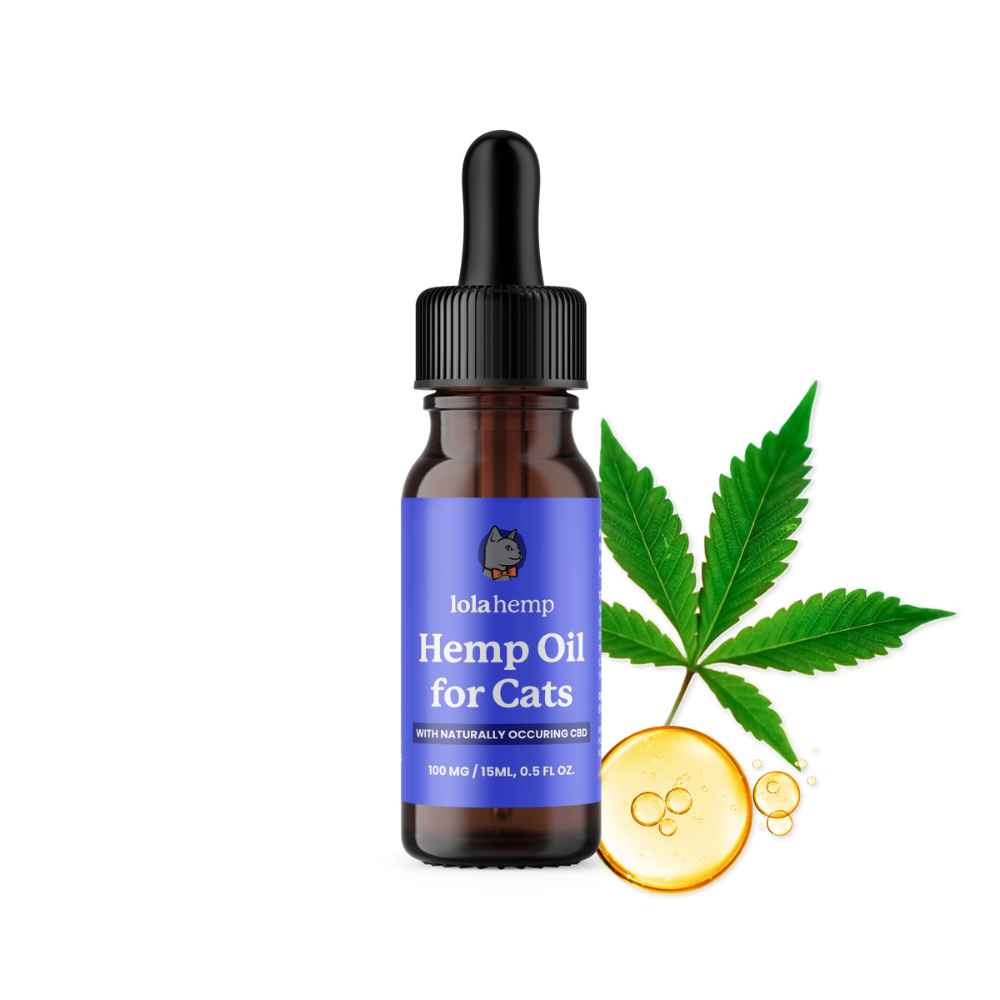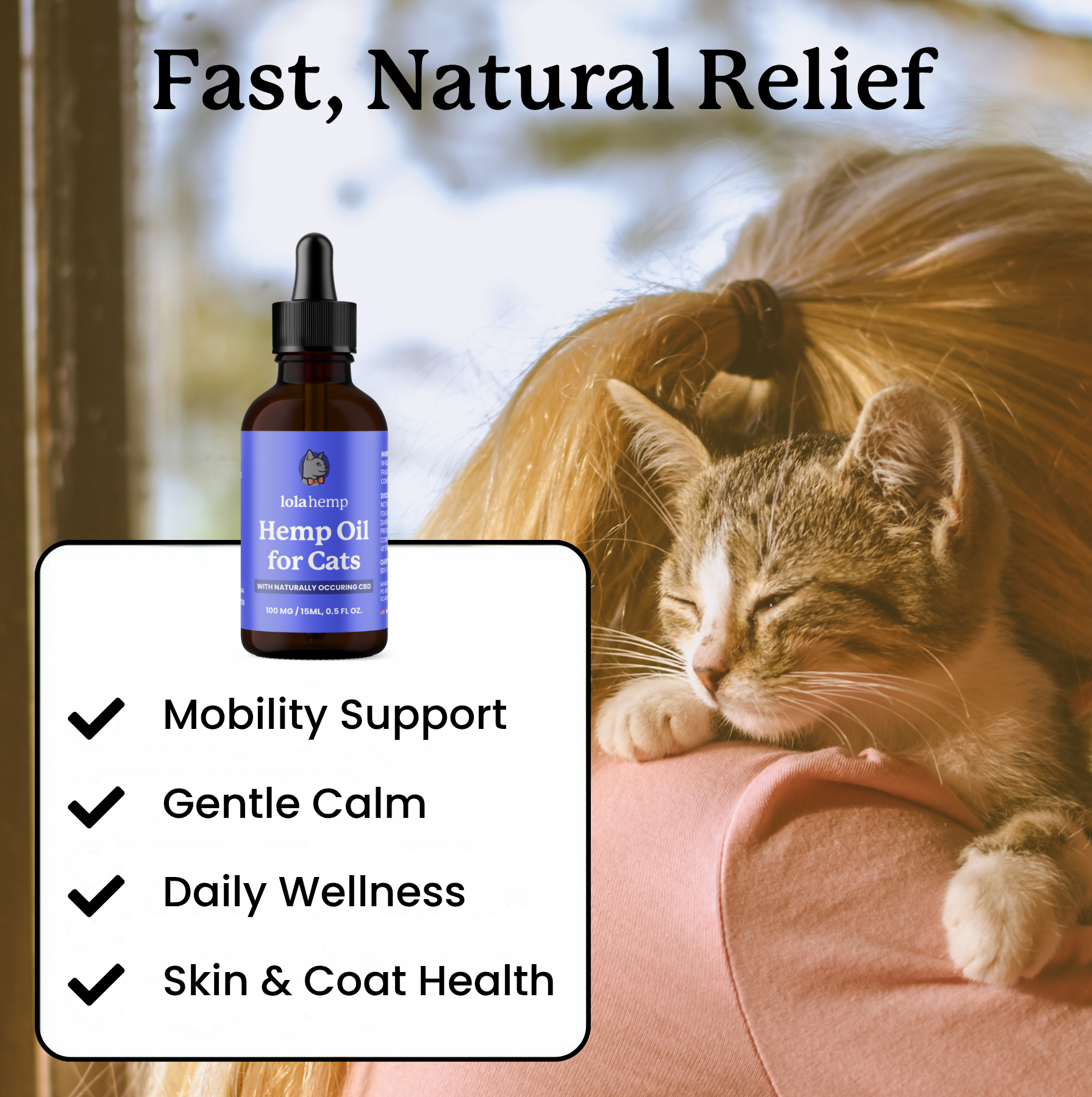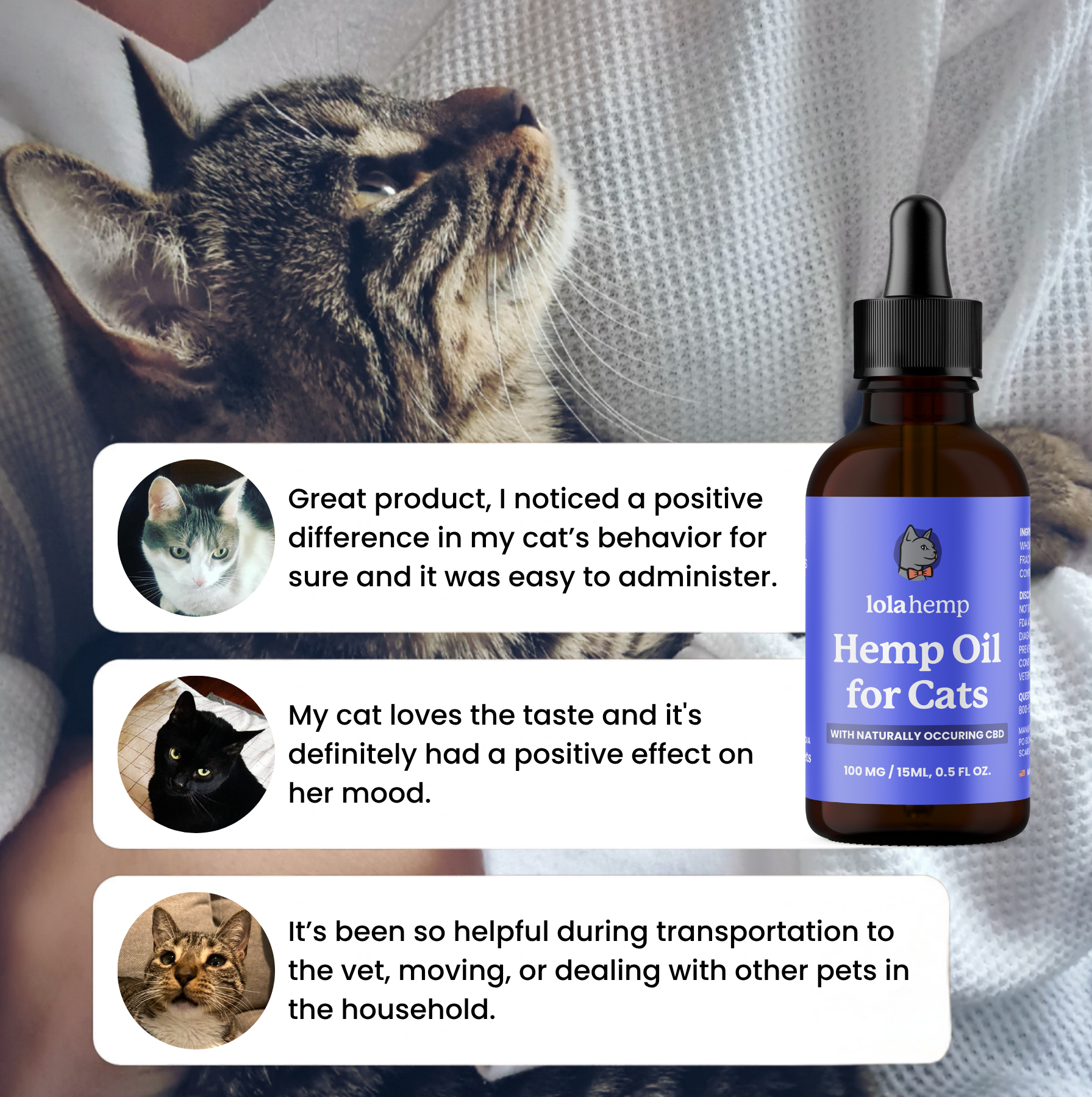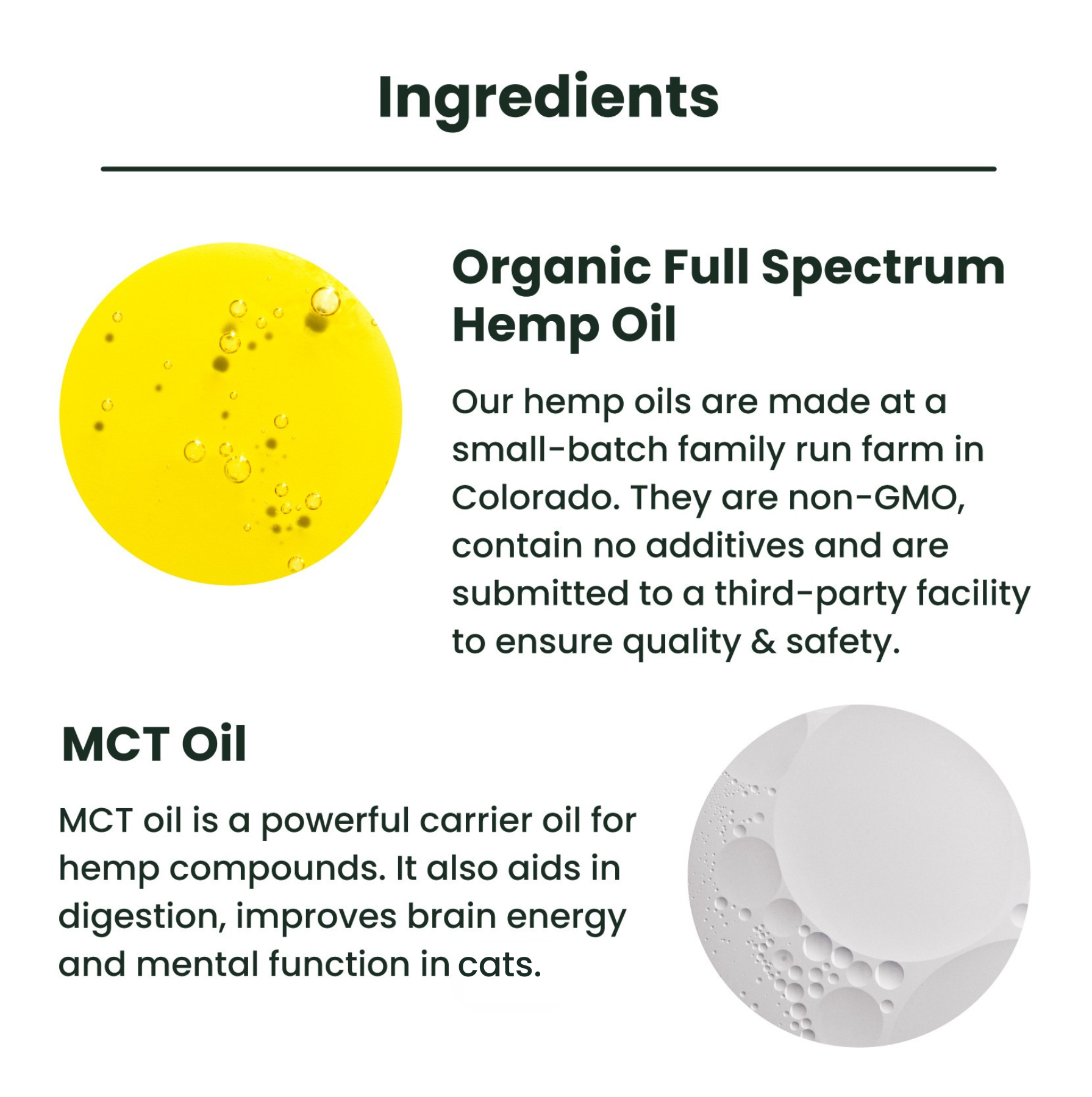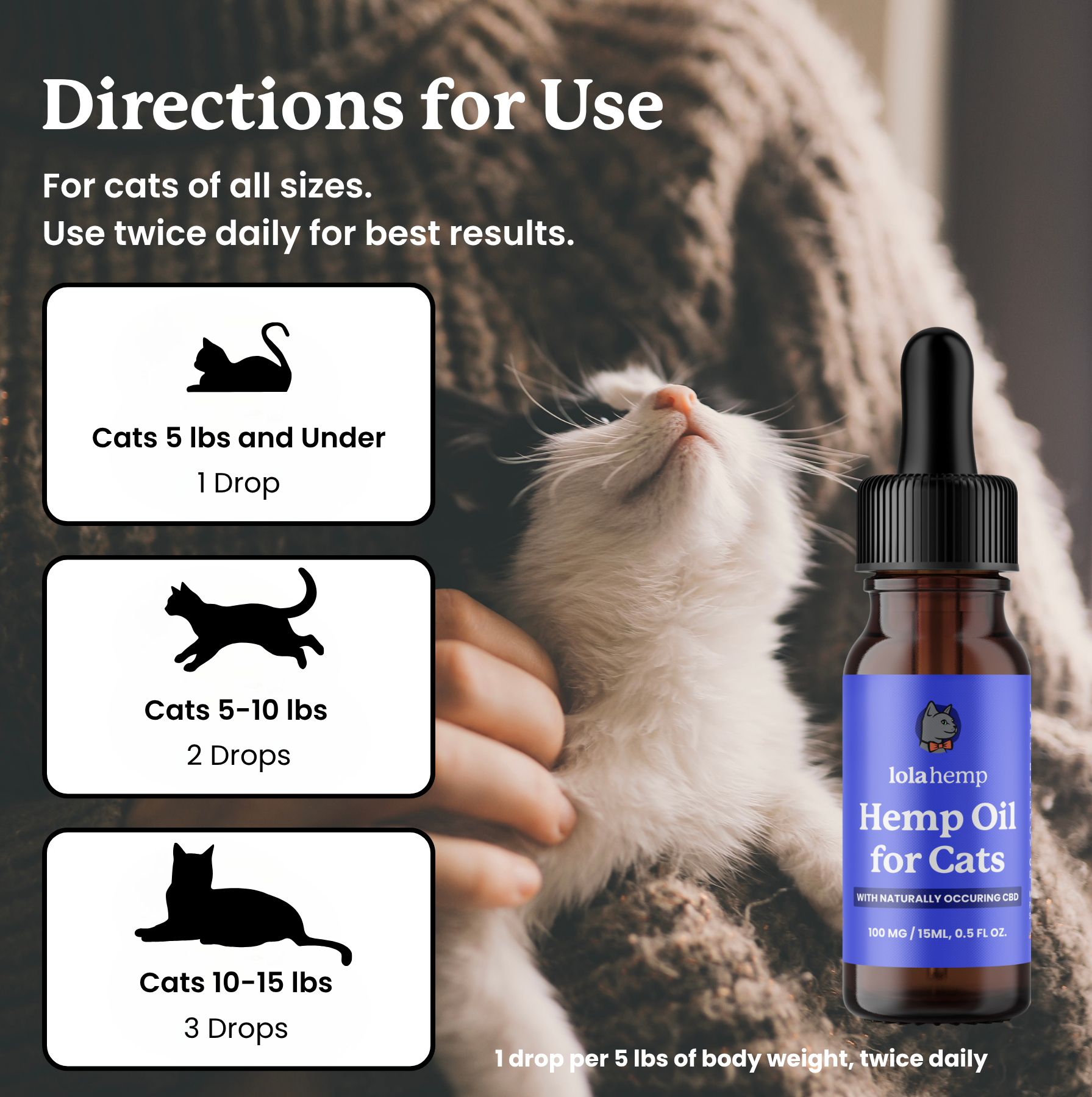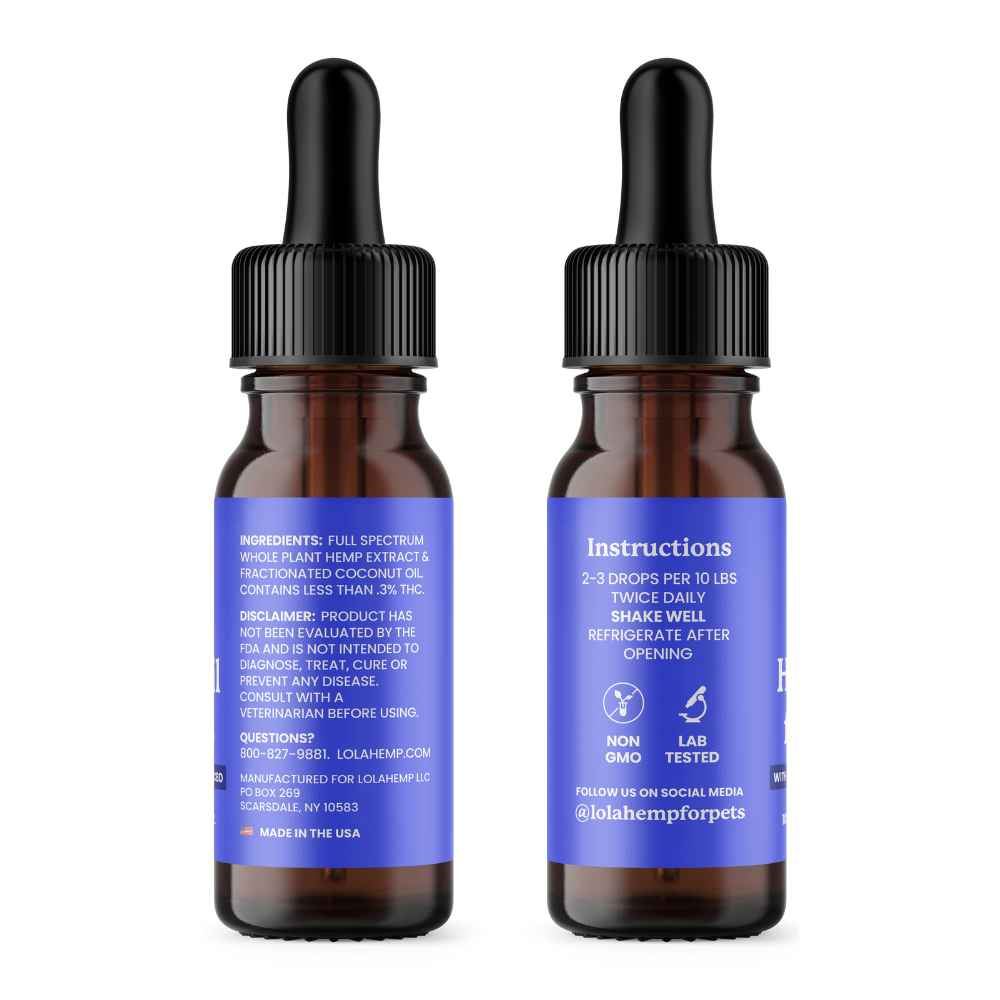Omega-3 fatty acids play an essential role in a cat’s overall health, supporting everything from skin and coat condition to joint discomfort and heart function. While cats require certain fats in their diet, omega-3s are particularly beneficial because they help reduce inflammation, support brain health, and may even improve kidney function.
Since cats cannot produce omega-3s on their own, they must obtain them from their diet. In this article, we’ll explore the benefits of omega-3 fatty acids for cats, the best sources to consider, and how to safely incorporate them into your cat’s routine.
- Omega 3 Fatty Acids are Essential for Cats
- What are The Benefits of Omega 3s for Cats?
- What Happens if Your Cat Doesn't Get Enough Omega 3s?
- The Best Sources of Omega 3s for Cats
- Frequently Asked Questions about Omega 3s for Cats
- 1. Can Omega 3s Support Inflammatory Bowel Disease in Cats?
- 2. Are All Fish Oil Supplements The Same?
- 3. Can Cats Have Too Much Omega 3?
- 4. Can I give Omega 3 for Humans to My Cat?
- 5. How Do I Get Omega 3 in My Cat's Diet?
- 6. How Much Omega 3 for Cats with Kidney Disease?
- 7. Are There Risks with Omega Supplements for Cats?
Omega 3 Fatty Acids are Essential for Cats
Yes, omega-3 fatty acids are considered essential for cats because their bodies cannot produce them in sufficient amounts. Cats must obtain omega-3s through their diet, primarily from marine sources like fish oil, krill oil, or algae-based supplements.
The most beneficial omega-3s for cats are EPA (eicosapentaenoic acid) and DHA (docosahexaenoic acid), which support brain function, joint health, and inflammation reduction. Another type, ALA (alpha-linolenic acid), is found in plant sources like flaxseed, but cats have a limited ability to convert ALA into usable EPA and DHA.
Since commercial cat foods may not always provide optimal omega-3 levels, supplementation can help ensure your cat gets the essential fatty acids needed for overall health.
What are The Benefits of Omega 3s for Cats?
Omega-3 fatty acids offer a wide range of health benefits for cats, making them a valuable addition to their diet. Here are some of the key advantages:
- Supports Skin and Coat Health – Omega-3s help reduce itching, dryness, and inflammation, making them beneficial for cats with allergies or skin conditions. They also promote a shiny, healthy coat.
- Reduces Inflammation – These essential fatty acids have natural anti-inflammatory properties that can help manage conditions like arthritis, kidney disease, and inflammatory bowel disease (IBD).
- Boosts Brain and Eye Development – DHA, a type of omega-3, is especially important for kittens’ brain and eye development, helping support cognitive function as they grow.
- Supports Heart Health – Omega-3s may help maintain a healthy heart by reducing blood pressure, lowering triglycerides, and supporting overall cardiovascular function.
- Aids in Kidney Disease Management – Studies suggest that omega-3s can slow the progression of kidney disease in cats by reducing inflammation and improving kidney function.
- Promotes Joint Health – Cats with arthritis or mobility issues may benefit from omega-3 supplementation, as it helps reduce joint pain and stiffness.
What Happens if Your Cat Doesn't Get Enough Omega 3s?
A deficiency in omega-3 fatty acids can lead to a range of health issues in cats, as these essential fats play a crucial role in overall well-being. Omega 3s underpin a crucial aspect of feline health, so a deficiency can really take a toll on their overall wellness. Some common signs of insufficient omega-3 intake include:
- Dry, flaky skin and a dull coat – Omega-3s help maintain skin hydration and promote a shiny, healthy coat.
- Increased inflammation – Without enough omega-3s, cats may experience more joint stiffness, arthritis symptoms, or general discomfort.
- Weakened immune system – Omega-3s support immune function, so a deficiency may leave cats more susceptible to illness.
- Cognitive decline – DHA is critical for brain health, and a lack of it may contribute to cognitive dysfunction, especially in senior cats.
- Poor heart health – Omega-3s help support cardiovascular function, and a deficiency could increase the risk of heart-related issues.
If you notice these signs, you can talk with your veterinarian or opt for a cat food that's rich in omega 3s. You can also find wet food, treats, and supplements that are high in omega 3 fatty acids. It's always best to talk with your veterinarian before introducing a new supplement into your cat's regimen, however.
The Best Sources of Omega 3s for Cats
Making sure your cat gets enough omega-3s starts with choosing the right sources. Marine-based options, like fish oil and krill oil, are the best choice because cats can absorb and use them more efficiently than plant-based sources.
While flaxseed and chia seeds contain omega-3s, cats struggle to convert them into the forms their bodies need. That’s why fish-derived sources are typically recommended for the biggest health benefits.
- Fish Oil – One of the richest sources of omega-3s, fish oil (from salmon, sardines, or anchovies) provides EPA and DHA, the most bioavailable forms for cats.
- Krill Oil – Similar to fish oil but with added antioxidants like astaxanthin, which may further support immune and joint health.
- Green-Lipped Mussels – A natural and sustainable source of omega-3s, plus other beneficial compounds like glucosamine for joint support.
- Flaxseed and Chia Seeds – While these contain ALA (a plant-based omega-3), cats struggle to convert it efficiently into EPA and DHA, making them less ideal compared to marine sources.
For the best results, look for high-quality, purified supplements designed specifically for cats to ensure safety and effectiveness. Dogs, cats, and humans all process ingredients differently, so dosages matter.
A product made for dogs, for example, may not be well tolerated in cats. It's always important to find supplements made just for cats, or discuss non-cat options with your veterinarian.

Frequently Asked Questions about Omega 3s for Cats
Here, are our collection of most frequently asked questions about omega 3s for cats:
1. Can Omega 3s Support Inflammatory Bowel Disease in Cats?
Yes, omega-3 fatty acids may help support cats with inflammatory bowel disease (IBD). For cats with IBD, omega-3 supplementation might help alleviate symptoms such as diarrhea, vomiting, and weight loss. However, note that omega-3s are not a cure for IBD and should be used as part of a comprehensive treatment plan developed by your veterinarian.
2. Are All Fish Oil Supplements The Same?
No, not all fish oil supplements are the same. Studies show that fish oils for cats have different fish sources, processing methods, concentrations of EPA and DHA, and ingredients added.
3. Can Cats Have Too Much Omega 3?
Yes, cats can have too much omega-3, and it's important to follow proper dosing guidelines that you and your vet agree on. Note the following that may result from an excessive use of them:
- Gastrointestinal upset: High doses may cause diarrhea, vomiting, or decreased appetite.
- Blood thinning: Omega 3s can affect blood clotting and potentially lead to an increased risk of bleeding.
- Nutrient imbalance: Excessive omega 3 intake might interfere with the absorption of other nutrients.
- Oxidative stress: Large amounts of fish oil can potentially increase oxidative stress if not balanced with antioxidants.
- Weight gain: Fish oil for cats has a lot of calories, therefore overfeeding can contribute to weight issues.
4. Can I give Omega 3 for Humans to My Cat?
In general, it's best not to give human-intended supplements to cats. One study alludes that while it's possible to give human omega 3 supplements to cats in some cases, it's generally not recommended for several reasons:
- Dosage concerns
- Added ingredients
- Concentration differences
Higher doses and ingredients that aren't intended for cats can contribute to health issues in the short and long term, depending on the situation. If you have an omega 3 product in mind, but it's not made for cats, run it by your veterinarian before giving it to them.
5. How Do I Get Omega 3 in My Cat's Diet?
There are several ways you can add omega 3 fatty acids to your cat's diet. You can introduce them as fish oil supplements, omega 3 enriched cat foods, whole food sources like sardines (packed in water, not oil), krill oil or algae-based supplements, or soft gel capsules.
All cats are different, so you'll have to explore the options that your cat enjoys the most.
6. How Much Omega 3 for Cats with Kidney Disease?
Omega-3 fatty acids may help support cats with kidney disease by reducing inflammation and slowing disease progression. However, the appropriate dosage depends on several factors, including the stage of kidney disease, the cat’s overall health, and any existing medications.
Veterinarians typically recommend EPA and DHA—the most beneficial forms of omega-3s—found in fish oil. While general dosing guidelines exist, a vet can provide the safest and most effective amount tailored to your cat’s specific needs. Too much omega-3 can lead to side effects like blood clotting issues, so proper supervision is essential.
7. Are There Risks with Omega Supplements for Cats?
Yes, there are potential risks associated but studies show that they are mostly due to high doses of fish oil for cats. Potential risks can include gastrointestinal upset, blood thinning effects, vitamin E deficiency, alleging reactions, weight gain, and interference or interaction with vet-prescribed medications.
So there you have it, current or future cat parent. You've learned why these fatty acids are so important, discovered the supplement options available, and covered some FAQs.
But remember, while we're singing the praises of the best fish oil, don't forget about other options like hemp oil, coconut oil, or even sunflower seeds for variety. The next time you find yourself wondering if fish oil is good for your cat, we hope you'll have the answer, and if not this article will still be here to guide you.

